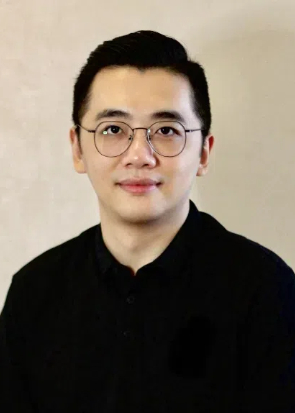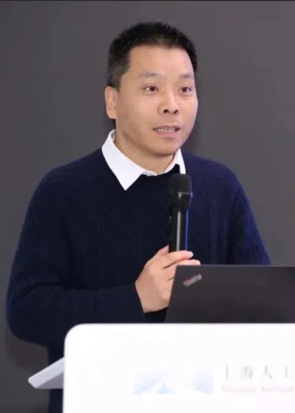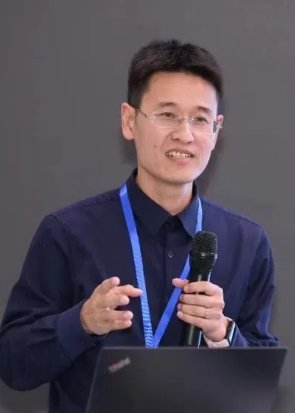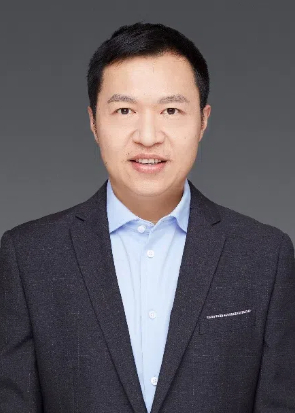1.Workshop Theme
Artificial intelligence (AI) is accelerating the transformation of education, bringing new opportunities and challenges to K-12 education, including early childhood education, compulsory education, and high school education. In the current context, integrating AI education into K-12 classrooms and using innovative practices to stimulate students' interest and potential in learning has become an important issue in the field of education. This workshop will focus on the foundations and cutting-edge applications of AI education in K-12, exploring how to teach AI-related knowledge and cultivate students' skills in AI technologies; how to empower classrooms with AI technologies to optimize teaching design, improve teaching effectiveness, and promote the development of students' core literacy and key capabilities.
Through this workshop, we will share the latest research developments and practical cases in AI education, explore AI education curricula, teaching tools, and resources suitable for different grade levels, and help teachers master effective strategies for AI teaching. Additionally, the workshop will provide hands-on sessions to help participants experience the specific applications of AI technologies in the classroom and enhance their teaching practice capabilities.
The following are some reference topics for the workshop, but not limited to these:
1)Foundations and Trends in K-12 AI Education: Explore AI education frameworks and goals suitable for different grade levels, and share policies and current status of AI education implementation.
2)AI Education Curriculum Design and Development: Share the development process and excellent cases of K-12 AI education curricula, and explore methods for curriculum evaluation and improvement.
3)Application and Operation of AI Educational Tools and Resources: Introduce or demonstrate the application of AI teaching platforms, virtual laboratories, educational robots, and other tools in classroom practices.
4)Developing Teachers' AI Teaching Competencies: Discuss how to improve the AI literacy and teaching abilities of K-12 teachers through training and practice.
5)AI Integration in Subject-Based Teaching Innovation: Share practical experiences of applying AI technology in teaching subjects like language arts, mathematics, science, and language learning.
6)Cultivating Students' Innovative Thinking and Problem-Solving Skills: Use AI technologies to design classroom activities and projects that enhance students' logical thinking, creativity, and problem-solving abilities.
7)Enhancing and Assessing Students' AI Literacy: Study how to effectively cultivate students' AI literacy at the K-12 level and explore tools and methods for assessing students' AI skills.
This workshop aims to build a platform for communication and collaboration, gathering experts, scholars, and K-12 teachers in the field of AI education, promoting the deep integration of AI education and classroom innovation practices, and contributing to educational reform and innovative development.
2.Workshop members:
Workshop Chair: Qi-Fan Yang (Fujian Normal University)

E-mail:yangfjnu@163.com
Dr. Qi-Fan Yang is an associate professor, doctoral supervisor, master supervisor, and postdoctoral co-supervisor in the College of Education of Fujian Normal University. He received his Doctor of Science degree from National Taiwan University of Science and Technology in 2019. Dr. Yang serves as an editorial board member and a reviewer for more than 10 academic journals. His main research interests are: educational robotics, artificial intelligence educational applications, and VR and AR-assisted teaching. Dr. Yang has published more than ten academic papers in international SSCI-indexed journals, including ten in Q1 journals. Dr. Yang also presides over the National Natural Science Foundation of China, the Education Science Planning of Fujian Province, and the Social Science Foundation of Fujian Province.
Workshop Co-chair:Zuoru Xie (Wenzhou science and Technology High School)

E-mail:beginnerfjw@163.com
Professor Xie Zuorong, a highly accomplished Information Technology teacher, is Director of AI Lab at Wenzhou High School in Zhejiang Province, China. He has a diverse range of research interests in Interdisciplinary Learning, Maker Education, STEM Education, and AI Education. He holds several esteemed positions, including Vice Chairman of the Chinese Society for Modern Educational Technology, Standing Director of the Information Technology Education Committee of China Education Technology Association, and Consultant of the Science and Technology Innovation Education Shanghai Artificial Intelligence Laboratory. He is also an expert of the “14th Five-Year Plan” National Training Program of the Ministry of Education. His contribution to the field of Information Technology Education was recognized when he was invited to be a special guest speaker for Mobile Learning Week by UNESCO in 2019.
Workshop Co-chairman: Jian-Wen Fang (Wenzhou University)

E-mail:beginnerfjw@163.com
Dr. Jian-Wen Fang, a native of Wenzhou, Zhejiang, is currently an Associate Professor and Master's Supervisor in the Department of Educational Technology at Wenzhou University. He is also the founder of the Maker Space at Wenzhou University and serves as the Vice President of the Wenzhou Maker Association. Dr. Fang holds a Master's degree in Educational Technology from East China Normal University and a Ph.D. in Digital Learning and Education from National Taiwan University of Science and Technology. His research focuses on artificial intelligence in education, STEM education, and technology-enhanced learning. In recent years, he has led or participated in several national and provincial research projects and has published more than ten high-quality papers in top international SSCI journals in the field of educational technology. Additionally, he serves as a reviewer for several internationally recognized SSCI journals.
Workshop Co-chairman: Jian-Wen Fang (Southwest University)

E-mail:mingliu@swu.edu.cn
Professor Ming Liu: Male, holds a Ph.D. from the University of Sydney, and completed a postdoctoral fellowship at the Smart Education Linkage Center at the University of Technology Sydney. He is a Professor in the Faculty of Education at Southwest University, a doctoral supervisor, a member of the Education Informatization Expert Database of the Chongqing Municipal Education Committee, and an Executive Director of the National Community for AI Education of Pre-service Teachers. His research areas include data-driven education evaluation models, multimodal learning analysis, and the application of generative artificial intelligence in educational innovation. He has led three projects funded by the National Natural Science Foundation of China and one sub-project under the Key Program of the National Social Science Fund’s Education Research Division. He is the author of the book Human-Computer Collaboration for Enhancing Students' Core Competencies in the Age of Smart Education: Theory, Technology, and Practice and has published over 50 papers. Professor Liu also serves as a guest editor for the international SCI journal Applied Science and holds various leadership positions in several international conferences on artificial intelligence and education (such as LAK 2019, ALASI 2018, etc.).
Workshop Program Committee:
1)Ning Yang Fujian Normal University
2)Jinghe Feng Wenzhou Municipal Education Bureau
3)Yongjie Teng Fuzhou Gulou District Education Bureau
4)Feng Chen Fuzhou Gulou District Teachers Training School
5)Qing-Ke Fu Huzhou University
6)Gaofeng Pan Fuzhou Chayuanshan Central Primary School
7)Jumin Huang Ouhai District Education Bureau
8)Biyun Huang City University of Macau
9)Xiangfeng Huang Wenzhou Early Childhood Teachers' Normal School
10)Min Lan Zhejiang Normal University
11)Zhengwei Bao Fujian Normal University
12)Yun-Fang Tu Taiwan University of science and technology
13)Zhengren Xia Wenzhou Teacher Education Institute
14)Di Zhang Zhejiang Normal University
15)Shao-Chen Chang Yuan Ze University
16)Jia-Hua Zhao Fujian Normal University
3.Paper format and submission:
Papers should be written in Simplified Chinese, Traditional Chinese or English and should be a maximum of eight pages for long papers and four pages for short papers. For Chinese papers, please provide the title, abstract and keywords in both English and Chinese.
※Papers with more than 15% duplicates or more than 20 consecutive duplicates will not be accepted.
※Papers that do not meet the formatting requirements of the conference may not be included in the conference proceedings.
※Submission and enquiry email: yangqifanfjnu@163.com (papers can be sent to this email address)
4.Important dates:
- Paper deadline: 12/04/2025
- Notification of review results: 19/04/2025
- Finalisation of papers: 29/04/2025 (please submit the copyright authorisation for the conference edition at the same time)
- Notification of review results: 19/04/2025
- Workshop Registration: 07/05/2025 (For early bird: 30/04/2025)
- Workshop dates: 24/05/2025—28/05/2025
